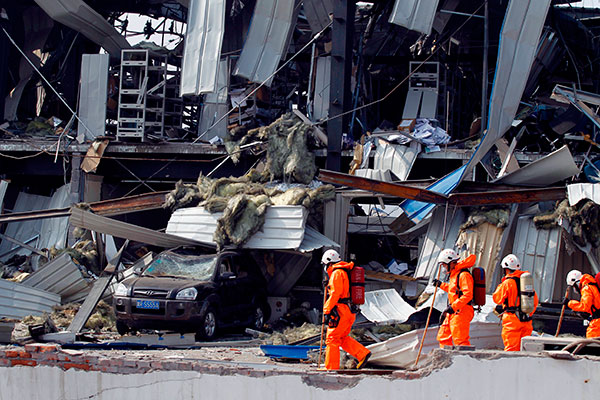Legacy of local knowledge can reduce disasters
China Daily by Agi Veres, October 13, 2015 Adjust font size:
|
Rescuers at the Tianjin chemical explosion site. The tragic incident has reportedly demonstrated the danger China faces by not diversifying its insurance risks. [Zhu Xingxin / China Daily] |
At the Third UN World Conference on Disaster Risk Reduction in Sendai, Japan, in March, the international community was reminded that disasters hit hardest at the local level, with the potential to cause loss of life and great social and economic upheaval. Sudden onset disasters displace millions of people every year.
Over the past 20 years, disasters due to natural hazards have affected 4.4 billion people worldwide, claimed 1.3 million lives and caused $2 trillion in economic losses. These disasters not only brought death and destruction, they did so disproportionately to the poor and marginalized. Disasters have become one of the main threats to sustainable development on a global scale, yet, in many cases, they are preventable.
The International Day for Disaster Reduction, which falls on Oct 13 every year, was first celebrated in 1989. It is a day to raise awareness about the importance of disaster risk reduction and to celebrate how people and communities are reducing their exposure to disasters. It's also a day to encourage every citizen and government to take part in building more disaster-resilient communities and nations.
The global theme for 2015, "Knowledge for Life", focuses on the traditional, indigenous and local knowledge that complement modern science to strengthen resilience.
The Sendai Framework, adopted in March this year, is the first major agreement of the post-2015 development agenda, which calls explicitly for governments to employ a people-centered approach and engage directly with indigenous peoples in the design and implementation of policies, plans and standards, and to use traditional and local knowledge in disaster risk assessments.
